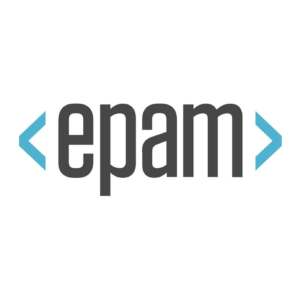
EPAM Unveils StatGPT 2.0 Platform with IMF, Enhancing Global Data Accessibility
NEWTOWN, Pa., Nov. 11, 2024 — EPAM Systems, Inc., a leading digital transformation services and product engineering company, has announced the release of the StatGPT 2.0 Platform, created in collaboration with the International Monetary Fund (IMF) for evaluating and testing by Statistical Data and Metadata eXchange (SDMX) sponsor organizations and selected national statistical organizations. The Platform will be shown at the 2024 IMF Statistical Forum: Measuring the Implications of AI on the Economy.
 EPAM’s StatGPT 1.0, was initially presented in October 2023 at the World SDMX Congress in Bahrain and then shown at numerous events, including the UNECE meeting of the Conference of European Statisticians and the various SDMX forums. EPAM created StatGPT based on EPAM DIAL and EPAM QuantHub platforms as a cornerstone of its next-generation conversational data exploration and analytics solutions.
EPAM’s StatGPT 1.0, was initially presented in October 2023 at the World SDMX Congress in Bahrain and then shown at numerous events, including the UNECE meeting of the Conference of European Statisticians and the various SDMX forums. EPAM created StatGPT based on EPAM DIAL and EPAM QuantHub platforms as a cornerstone of its next-generation conversational data exploration and analytics solutions.
SDMX is a set of technical standards designed to describe statistical data and metadata, normalize their exchange and improve their efficient sharing across statistical and similar organizations.[1] It is published as ISO 17369.[2] The SDMX initiative also receives support from the Bank for International Settlements (BIS), the European Central Bank (ECB), Eurostat (the statistical office of the European Union), the International Monetary Fund (IMF), the Organisation for Economic Co-operation and Development (OECD), the United Nations Statistics Division (UNSD), and the World Bank.
The IMF is a multilateral organization that works to achieve sustainable growth and prosperity for all of its 191 member countries. It does so by supporting economic policies that promote financial stability and monetary cooperation, which are essential to increase productivity, job creation, and economic well-being.
The new version, StatGPT 2.0, introduces a new approach to data accessibility and user interaction in statistical data management and exchange. It is based on the EPAM DIAL technology and was built over the last six months in close collaboration with IMF experts. The Platform allows users to access and engage with the world’s economic and financial data using natural language. It is more efficient than current query tools and ensures users are directed to the right data and understand how to best use it.
StatGPT 2.0’s evaluation included eight publicly available datasets from international and national statistical agencies and was evaluated by more than 100 representatives from SDMX sponsoring institutions and national statistical organizations.
Jim Tebrake, Deputy Director, Statistical Department of IMF, shared: “As a user of economic and financial statistics, I am excited about the creation of the StatGPT 2.0 GenAI-powered platform, which will significantly improve the way users access the world’s global economic data. The novelty in the StatGPT 2.0 Platform is its ability to seamlessly guide users to the specific data they need.”
Ilya Gorelik, Vice President and Head of EPAM’s Reliable AI Lab, shared: “Creating the StatGPT 2.0 Platform in collaboration with IMF’s Statistical Department was an incredibly rewarding experience. I’m proud to share that we have received positive feedback from the global and the IMF testing communities.”
Learn more about EPAM DIAL at https://epam-rail.com/platform.
Learn more about EPAM’s advanced AI solutions and advisory capabilities here.
About EPAM Systems
Since 1993, EPAM Systems, Inc. (NYSE: EPAM) has used its software engineering expertise to become a leading global provider of digital engineering, cloud and AI-enabled transformation services, and a leading business and experience consulting partner for global enterprises and ambitious startups. The Company addresses clients’ transformation challenges by focusing EPAM Continuum’s integrated strategy, experience and technology consulting with our 30+ years of engineering execution to speed clients’ time to market and drive greater value from their innovations and digital investments.
Source: EPAM



























